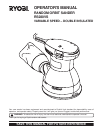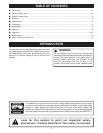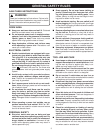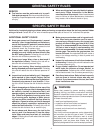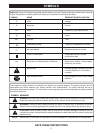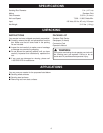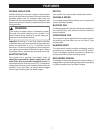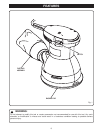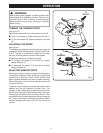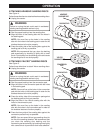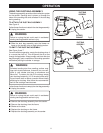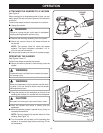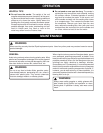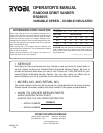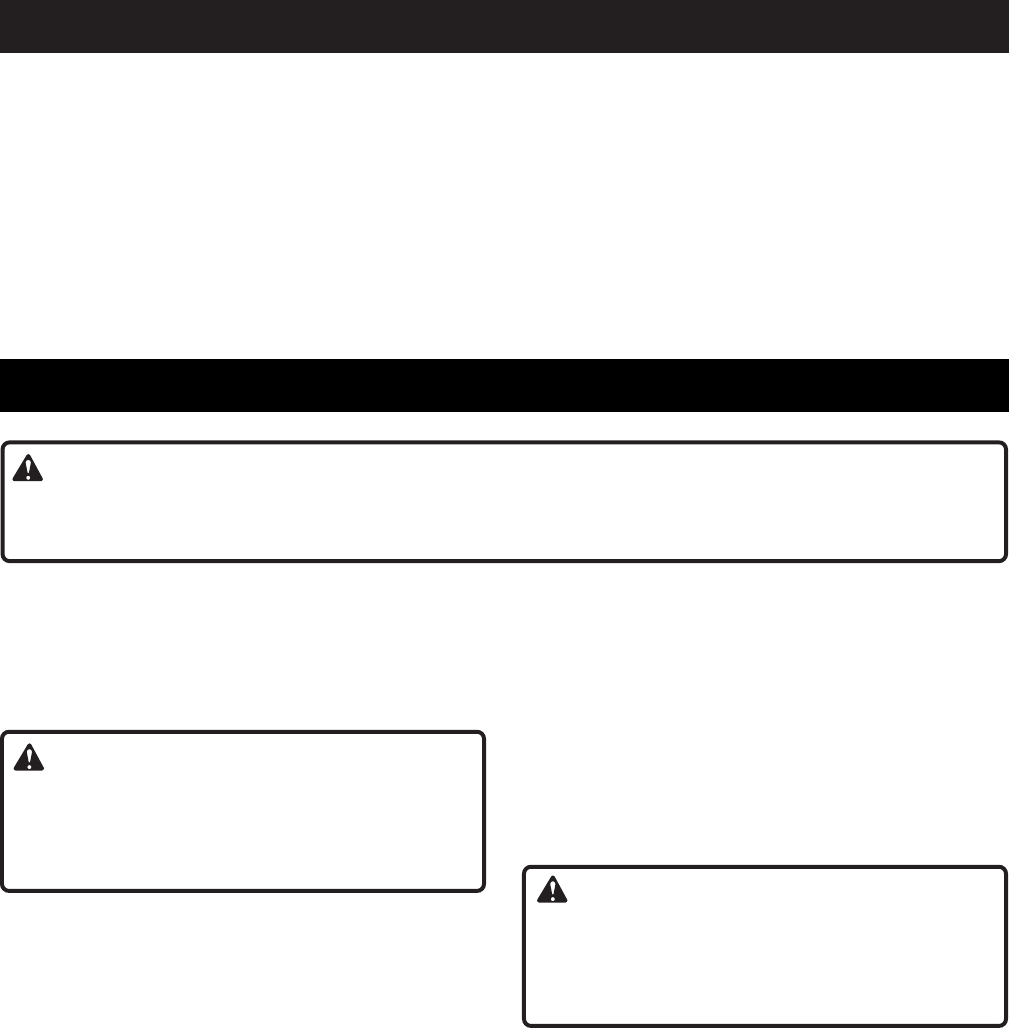
13
OPERATION
HELPFUL TIPS
■ Do not force the sander. The weight of the unit
supplies adequate pressure; therefore, let the sand-
ing disc and sander do the work. Applying additional
pressure only slows the motor, rapidly wears the
sanding disc, and greatly reduces the sander speed.
Excessive pressure will overload the motor causing
possible damage from motor overheating and can
result in inferior work. Any finish or resin on the
wood may soften from the frictional heat.
■ Do not sand on one spot too long. The sander’s
rapid action may remove too much material, making
the surface uneven. Extended periods of sanding
may tend to overheat the motor. If this occurs, turn
off the sander and wait until the sanding disc comes
to a complete stop. Then remove the sander from
the workpiece. Remove your hand from the vent
area, remove the sanding disc, then (with your hand
removed from the vent area) turn on the sander and
run it free, without a load, to cool the motor.
WARNING:
When servicing use only identical Ryobi replacement parts. Use of any other parts may create a hazard or cause
product damage.
GENERAL
Avoid using solvents when cleaning plastic parts. Most
plastics are susceptible to damage from various types of
commercial solvents and may be damaged by their use.
Use clean cloths to remove dirt, carbon dust, etc.
WARNING:
Do not at any time let brake fluids, gasoline, petro-
leum-based products, penetrating oils, etc. come in
contact with plastic parts. They contain chemicals
that can damage, weaken, or destroy plastic.
MAINTENANCE
When electric tools are used on fiberglass boats, sports
cars, wallboard, spackling compounds, or plaster, it has
been found that they are subject to accelerated wear and
possible premature failure, as the fiberglass chips and
grindings are highly abrasive to bearings, brushes,
commutators, etc. Consequently, it is not recommended
that this tool be used for extended work on any fiberglass
material, wallboard, spackling compounds, or plaster. If,
however, you do work with any of these materials, it is
extremely important that the tool is cleaned frequently by
blowing with an air jet.
WARNING:
Always wear safety goggles or safety glasses with
side shields during power tool operation or when
blowing dust. If operation is dusty, also wear a dust
mask.



